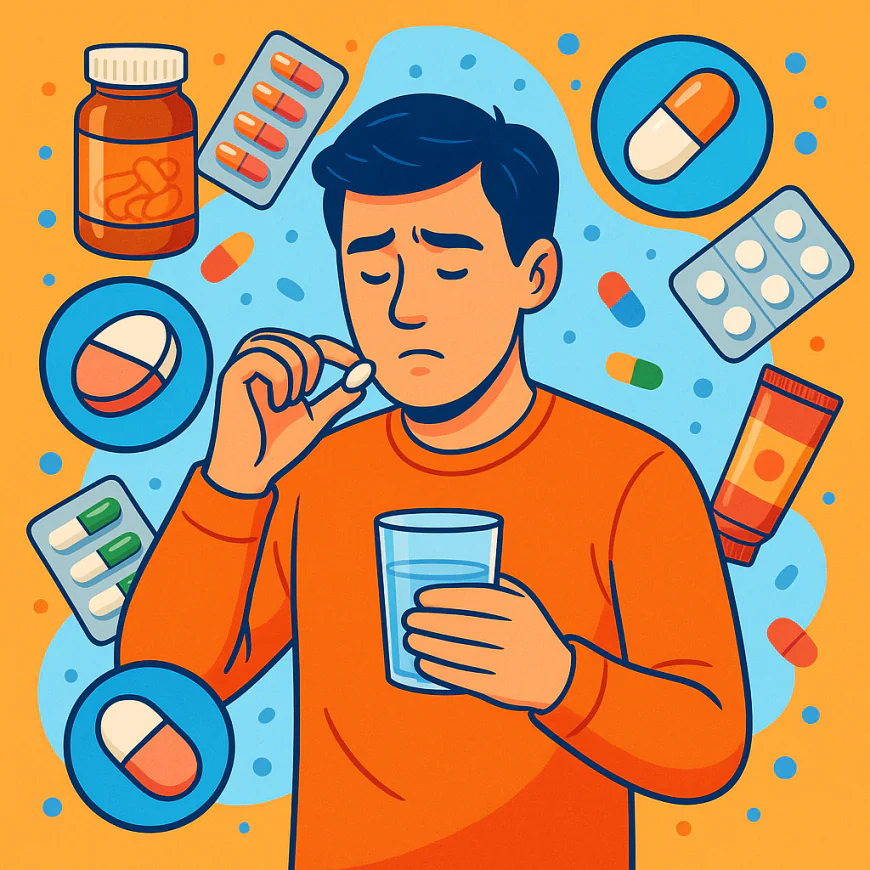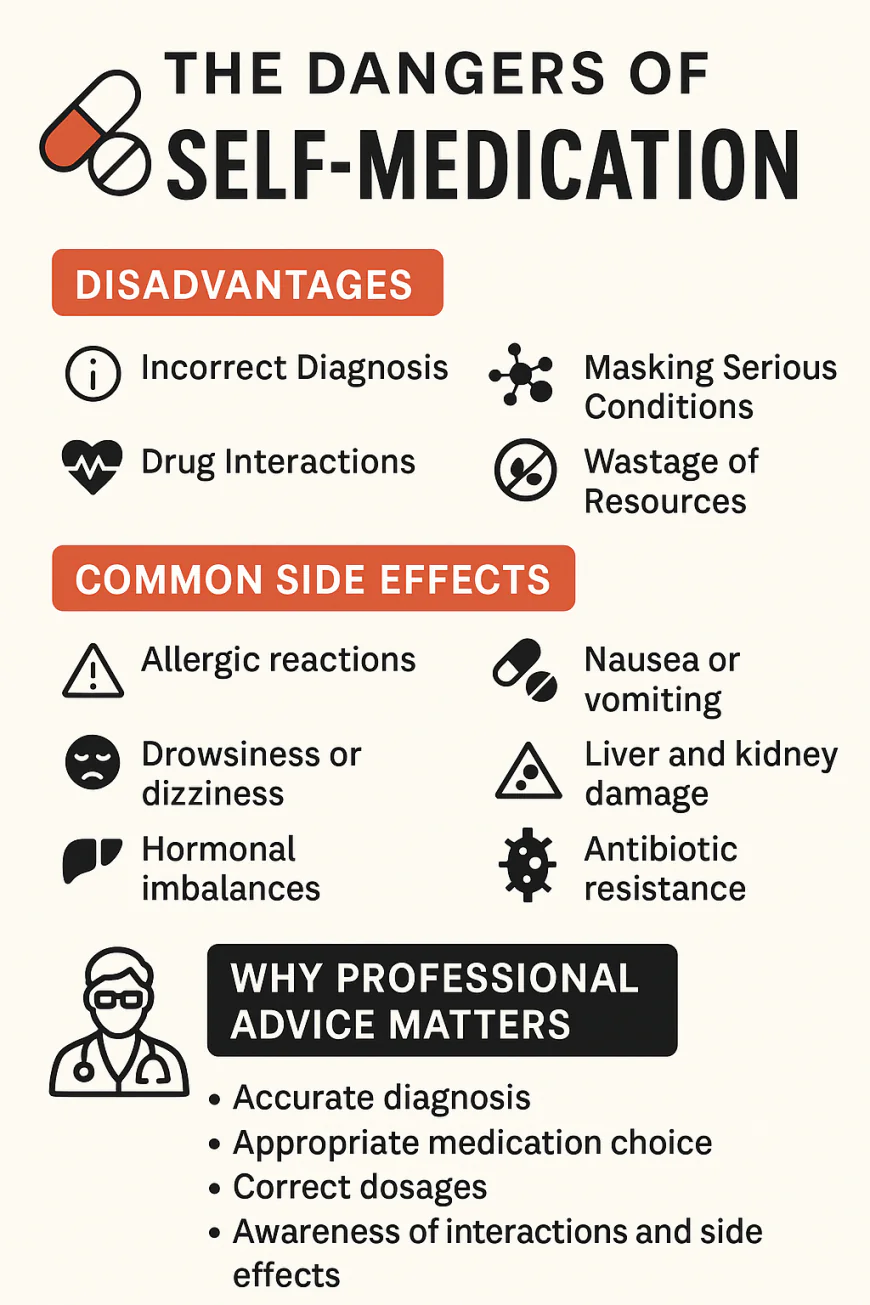The Hidden Dangers of Self-Medication: Why Professional Medical Advice Matters
Self-medication might seem convenient for minor health issues, but it carries serious risks—misdiagnosis, drug interactions, addiction, and more. Learn why consulting a healthcare provider is always the safer choice.
Many people turn to self-medication for quick relief from common health issues—headaches, colds, stress, and body aches. With easy access to over-the-counter (OTC) drugs and leftover prescriptions, it’s tempting to treat symptoms without professional advice. However, this convenience often comes at a hidden cost.
This article explores the disadvantages, health risks, and side effects of self-medication, and why a doctor’s input is not just helpful, but necessary.
What Is Self-Medication?
Self-medication refers to the use of drugs or treatments to address health problems without the guidance of a licensed medical professional. It includes:
-
Taking over-the-counter (OTC) medications
-
Reusing old prescriptions
-
Following advice from friends, family, or the internet
-
Altering doses or mixing medications without approval
While handling minor issues at home can seem harmless, improper self-treatment—even for something as simple as a cold—can backfire.
Top 5 Disadvantages of Self-Medication
1. Incorrect Diagnosis
Without a professional evaluation, it’s easy to misread symptoms. For instance, abdominal pain could be indigestion—or appendicitis. Self-medicating might mask pain while a serious condition worsens undetected.
2. Dangerous Drug Interactions
Combining medications or supplements without knowing how they interact can result in heart complications, liver failure, or severe allergic reactions. Some drugs also interfere with alcohol or food.
3. Masking Underlying Illnesses
Painkillers and fever reducers might relieve discomfort, but they can hide warning signs of infections, tumors, or cardiovascular disease—delaying life-saving treatment.
4. Addiction and Dependence
Overusing medications like sleep aids, opioids, or anxiety pills without oversight can lead to psychological or physical dependence, affecting brain function and behavior.
5. Economic Waste and Drug Resistance
Wrong or unnecessary use of medication not only wastes money but contributes to antibiotic resistance, a global health crisis where infections become harder to treat.
Common Side Effects of Self-Medication
Even “safe” drugs can cause harmful reactions when misused:
-
Allergic reactions: rashes, swelling, or breathing difficulties
-
Dizziness, drowsiness, impaired motor skills
-
Nausea, vomiting, diarrhea
-
Liver or kidney damage from excessive use
-
Hormonal imbalances
-
Antibiotic resistance, weakening the body’s defenses
These effects can range from mild discomfort to medical emergencies.
Why Medical Advice Is Essential
A healthcare provider offers:
-
Proper diagnosis
-
The right medication and dosage
-
Warnings about drug interactions and allergies
-
Monitoring for side effects
-
Guidance on lifestyle changes for long-term wellness
Professional advice ensures safer, faster recovery and avoids the dangerous guesswork involved in self-treatment.
Safe Alternatives and Precautions
If you must manage minor ailments at home:
-
Read medication labels carefully
-
Don’t use expired or leftover prescriptions
-
Try to treat the root cause—not just the symptoms
-
Speak to a pharmacist if a doctor isn’t immediately accessible
-
Keep emergency contacts and health insurance details up to date
Final Thoughts
Self-medication is never a substitute for professional care. While it may offer quick relief, the risks—misdiagnosis, harmful drug reactions, addiction, and delayed treatment—can be life-threatening.
Your health deserves more than shortcuts.
Choose knowledge over guesswork, and safety over convenience.




